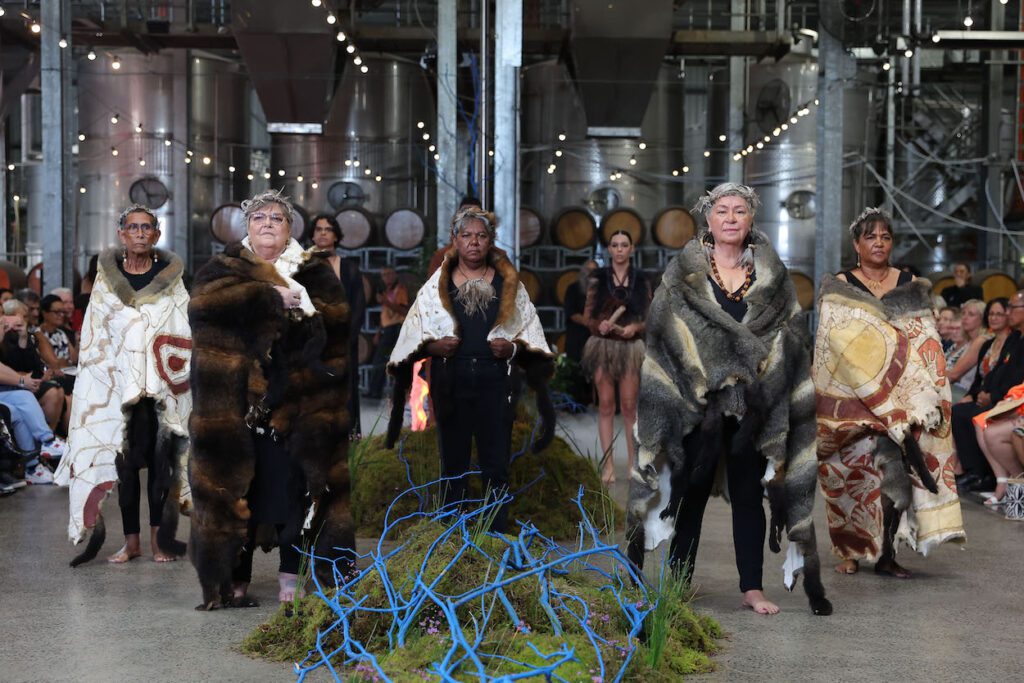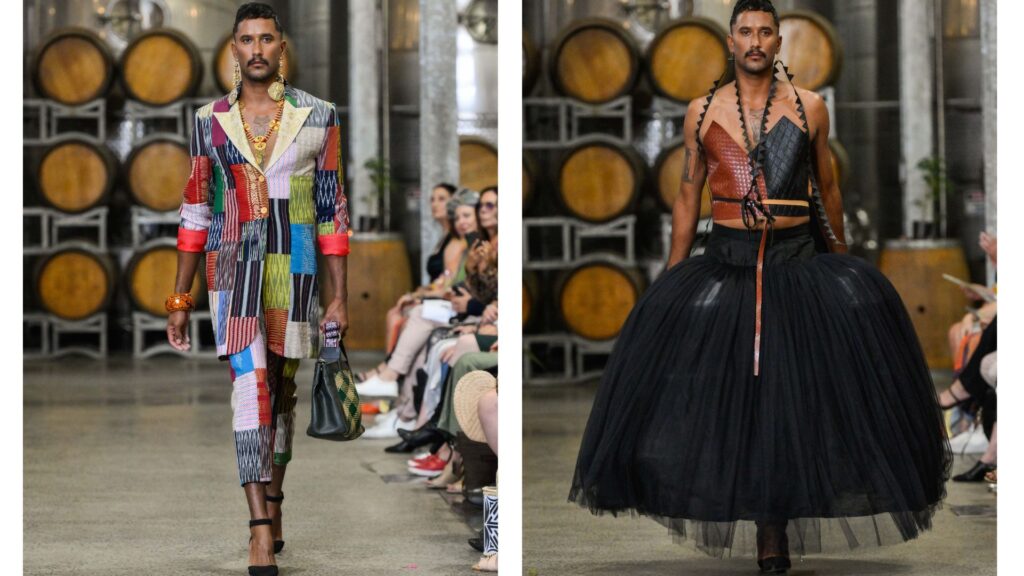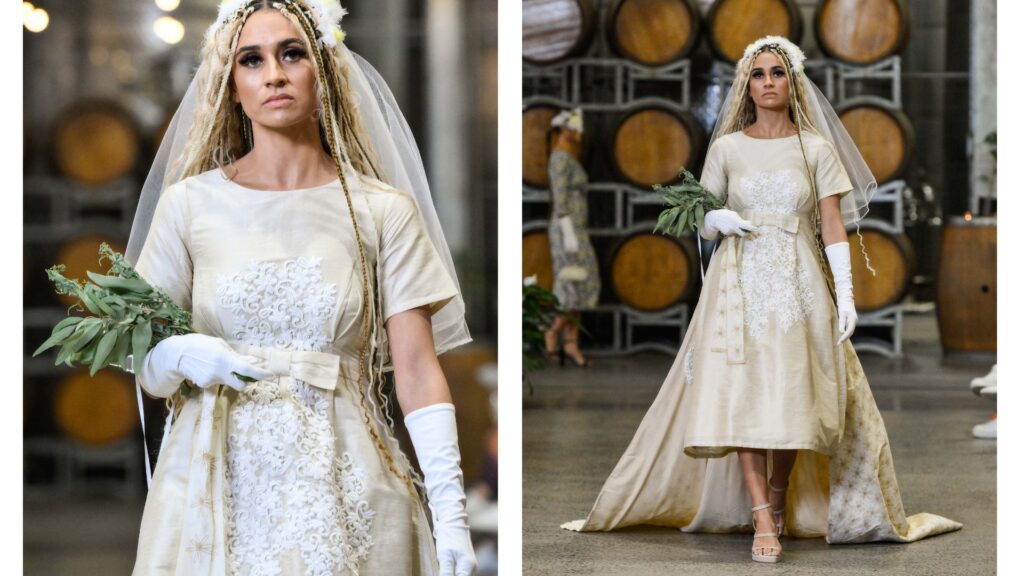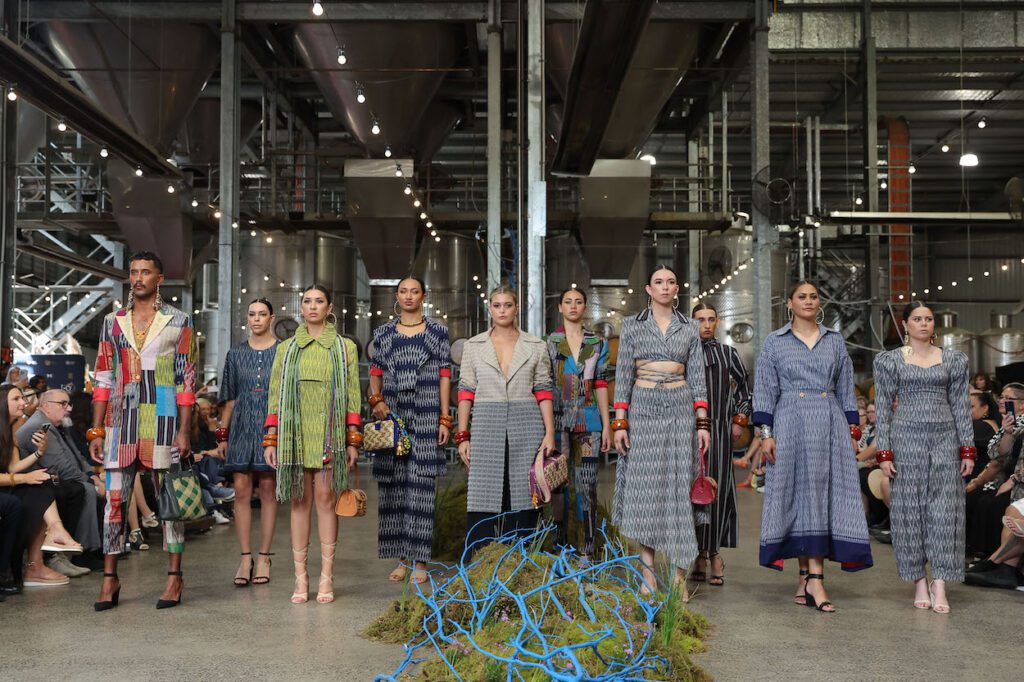Indigenous Fashion
Earlier this month Tina Waru and her team at Global Indigenous Runway put together another exciting showcase with a difference. Now in its 10th year at the Melbourne Fashion Festival, the Indigenous fashion showcase features designers, artists, and models from around the world. This year’s theme, My Spirit My Country, invoked campfires on country and the island homelands of the designers.

Held for the first time in Geelong at the Mt Duneed Estate Barrel Hall, the showcase was as diverse in its fashion as it was in storytelling.
Designers from Aotearoa (NZ), Samoa, Indonesia and First Nations Models from North America joined locals Indigenous creatives alongside others from around the world. Walking the runway were trans, non-binary, plus size and mature-age models, amongst others.

“We are creating new experiences for fashion audiences around the world…”
– Founder Tina Waru
The Wadawurrung nation, (aka Wathaurong, Wathaurung, and Wadda Wurrung) opened the showcase wearing possum skins, and walking through an ethereal mist and moss island set. Later, the volcanic Islands of Samoa, Tonga and Hawaii featured a graceful pacific island trio calling through song, to protect mother earth and all living things. Soon after, the roar of a New Zealand Maori Chief echoed to clear the shorelines of New Zealand for his people to walk the sacred lands.

The Global Indigenous Runway has been a launching pad for the careers of a number of designers and models. In an industry that has often appropriated from the aesthetics and culture Indigenous peoples, Indigenous designers are now re-appropriating and evolving their own cultural designs. A spectacular celebration of colour and texture with luxe fashion moments , the Global Indigenous Runway always manages to create its own buzz during the Melbourne Fashion Festival.

Says founder Tina Waru, “First Nations people are very resourceful, artistic, creative and connected to our people, our lands, our spirit, and our culture. After ten years we are becoming more visible in the fashion industry and able to tell our stories through this medium. This is an empowering platform and we have done this with minimal resources. We are creating new experiences for fashion audiences around the world and opening up a world of possibilities for First Nations peoples and their next generations.”
All Images by: Lucas Dawson Photography
See more at: Fashion Meets Culture
